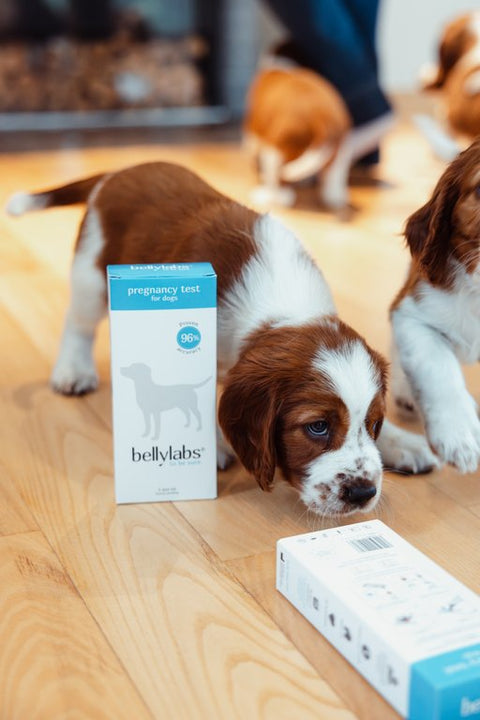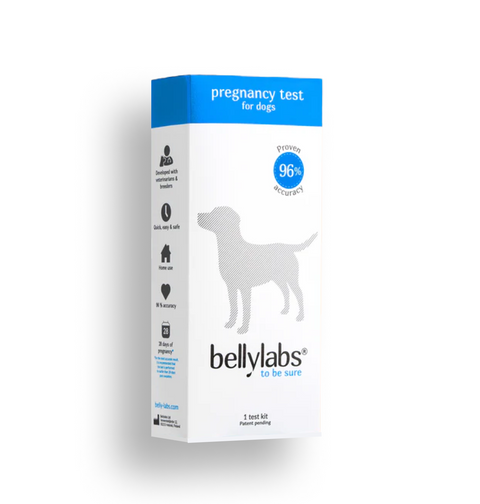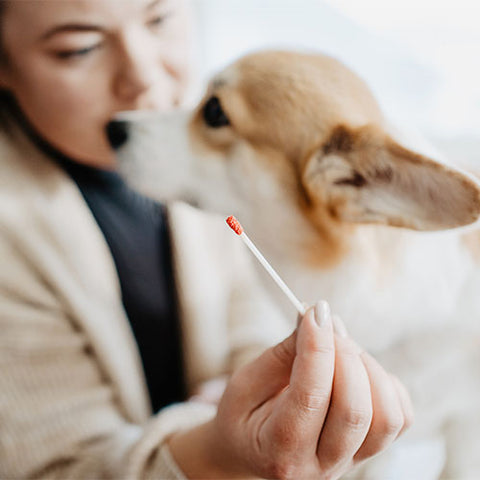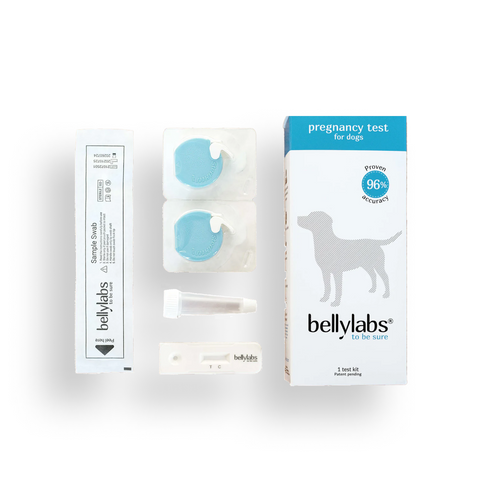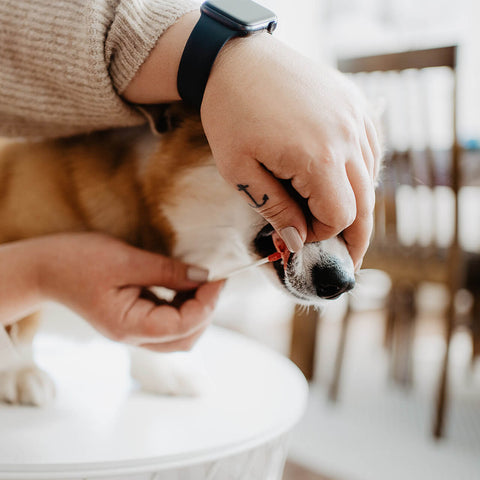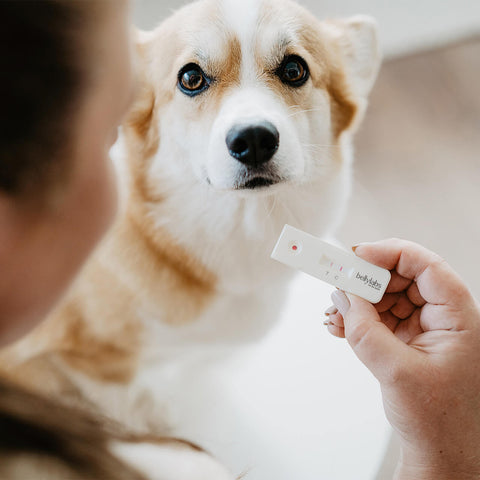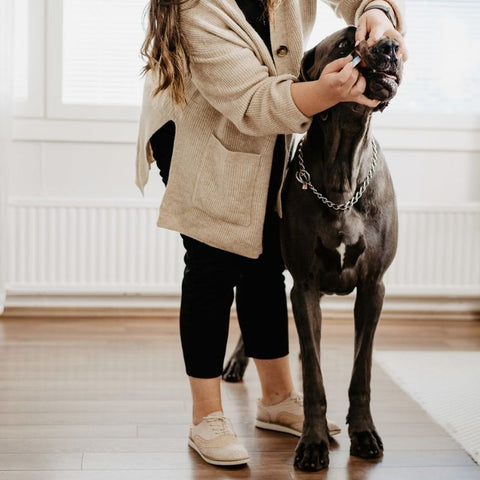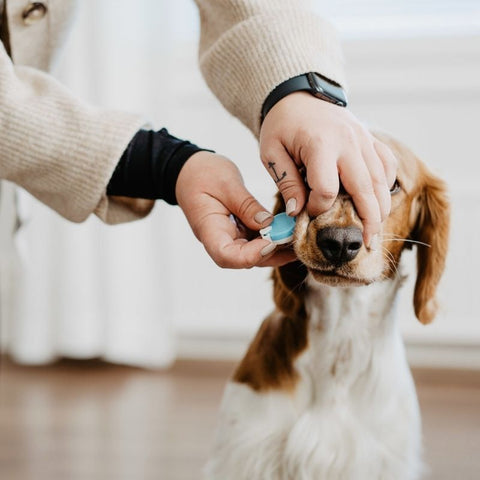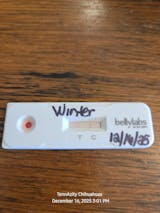What a journey welcoming a litter of adorable puppies into the world is! Such an exciting and rewarding experience for dog owners. To ensure a healthy and successful pregnancy, it's essential to have a good understanding of the dog gestation calendar, dog gestation length, and the various aspects of canine pregnancy. In this guide, we will delve into the intricacies of dog pregnancy, including the gestation period in weeks and months, the puppy gestation period, and everything you need to know to support your female dog through this special time.
Dog Gestation Calendar: Tracking the Pregnancy Milestones
A dog gestation calendar is a valuable tool for dog owners and breeders alike. It allows you to track the progress of your dog's pregnancy, anticipate important milestones, and ensure that your canine companion receives the care and attention she needs during this critical period.
The average dog gestation period is approximately 63 days, from when she ovulates to giving birth, but it can vary depending on factors such as breed, age, and individual health. Using a dog gestation calendar, you can estimate when your dog is due to give birth and plan accordingly. Here's a breakdown of the key stages in a dog's gestation calendar:
Week 1-2: Fertilization and Embryo Development
- During the first two weeks, the fertilized egg travels down the fallopian tube and attaches to the uterine wall. This is called implantation. This is when the embryos start developing. On average this happens from day 17 to day 21 post-ovulation.
Week 3-4: Organ Development
- By the third and fourth weeks, the embryos begin developing organs, and you may notice subtle changes in your dog's behavior and appetite.During this time you can test at home for pregnancy or visit a veterinarian.
Week 5: Visible Changes
- Around the fifth week, your dog's abdomen may start to visibly expand. If your female is carrying a very small litter, however, she may never appear very pregnant.
Week 6-7: Fetal Growth
- The sixth and seventh weeks mark a period of rapid foetal growth. Your dog's nutritional needs will increase, so consider adjusting her diet accordingly. Be careful not to over or underfeed your female.
Week 8-9: Preparing for Birth
- In the eighth and ninth weeks, your dog will likely start nesting behavior, and you should prepare a whelping box for her to give birth comfortably.
Dog Gestation Length: How Long Are Dogs Pregnant?
The average dog gestation length, as mentioned earlier, is approximately 63 days, or roughly nine weeks. However, this is just an average, and the actual length of dog pregnancy can vary. Smaller breeds tend to have shorter gestation periods, while larger breeds may have longer ones. Litter size may also affect the length of her pregnancy. Bitches with very large litters tend to whelp slightly earlier. It's important to note that the variation can be as much as a week or more in some cases, especially if the day of ovulation is unknown. You can be sure about ovulation by progesterone testing during her heat.
Factors that can influence the dog gestation length include:
-
Breed Size: Smaller dog breeds typically have slightly shorter gestation periods, often closer to 58-63 days, while larger breeds may have gestation periods of 63-68 days or more.
-
Age: A younger dog may have a slightly shorter gestation period compared to an older one.
-
Litter Size: Larger litters may have a shorter gestation period, while smaller litters might require a longer time for proper development.
-
Individual Variations: Just like in humans, each dog's pregnancy may vary slightly due to individual differences.
Dog Gestation Period in Weeks: Detailed Breakdown
Understanding the dog gestation period in weeks is crucial for monitoring your dog's pregnancy and ensuring she receives the right care and attention throughout this period. Here's a more detailed breakdown of the dog gestation period in weeks:
-
Week 1-2: These weeks encompass the initial stages of pregnancy, from fertilization to embryo development. It's challenging to detect pregnancy during this time, and there are no significant physical changes in your dog.
-
Week 3-4: By the end of the third week and into the fourth week, the embryos start developing. You may notice subtle behavioral changes and possible changes in appetite. A veterinarian can perform an ultrasound or you can test for pregnancy at home.
- Week 5: At this point, the pregnancy becomes more apparent as your dog's abdomen begins to swell. If she is carrying a very small litter or she has a very big frame, you might not be able to tell whether she is pregnant without a scan or a test.
-
Week 6-7: The sixth and seventh weeks mark a period of rapid fetal growth. Your dog's nutritional needs will increase, so consider feeding her high-quality puppy food to support the developing puppies.
-
Week 8: By the eighth week, your dog will likely start exhibiting nesting behavior. This is a sign that she's preparing for labor. You should also set up a whelping box during this time. Make sure she can get away from other animals to rest. All stress should be avoided.
-
Week 9: The final week is when your dog is due to give birth. Keep a close eye on her for signs of labor, such as restlessness, panting, and a drop in body temperature. Consult your veterinarian if you have any concerns or complications during labor.
Dog Gestation Period in Months: Understanding Pregnancy Milestones
While it's common to refer to a dog's pregnancy in weeks, understanding the dog gestation period in months can provide a broader perspective on the stages of pregnancy. A dog's pregnancy is approximately 63 days long, which is equivalent to around 2 months and 1 week.
Here's a breakdown of the dog gestation period in months:
-
Month 1: During the first month, your dog undergoes fertilization, embryo development, and the initial stages of pregnancy. There are possibly no visible physical changes during this time. She may appear more tired and have either increased appetite or “morning sickness”.
-
Month 2: The second month is when the pregnancy becomes more apparent. Your dog's abdomen will start to swell, and you may notice changes in her behaviour and appetite as the embryos continue to develop.
-
Week 9: The ninth week marks the end of the second month and the final week of pregnancy. This is when you should prepare for the birth of the puppies and be ready to provide your dog with the necessary support.
Puppy Gestation Period: Ensuring a Healthy Pregnancy
The puppy gestation period, also known as the fetal development stage, encompasses the time from fertilization to birth. It's crucial to understand this period to ensure the health and well-being of both the mother and her puppies.
During the puppy gestation period, several key developments occur:
- Fertilization: Fertilization typically occurs within a day or two after mating when the sperm meets the egg in the fallopian tube.
- Embryo Development: During the first few weeks of the puppy gestation period, the embryos undergo rapid cell division and start developing into recognisable shapes.
- Organ Formation: By week three and four, the embryos develop major organs, including the heart, brain, and spinal cord.
- Fetal Growth: From week five onward, the puppies experience rapid growth. It's essential to provide your pregnant dog with a nutritious diet to support this growth.
- Nesting Behavior: As your dog approaches the end of the puppy gestation period, she may exhibit nesting behavior, such as searching for a quiet and comfortable place to give birth.
Caring for a Pregnant Dog
Proper care during a dog's pregnancy is essential to ensure a healthy and successful outcome. Here are some tips for caring for a pregnant dog:
-
Diet: Transition your dog to a high-quality puppy food during pregnancy to provide the necessary nutrients for both her and the developing puppies. Consult your veterinarian for specific dietary recommendations.
-
Exercise: Continue regular, moderate exercise throughout most of the pregnancy. However, avoid strenuous activities and provide your dog with plenty of rest during the final weeks.
-
Prenatal Check-ups: Schedule regular prenatal check-ups with your veterinarian to monitor the pregnancy's progress and address any potential issues. Make sure she is up to date on her vaccines and dental care.
-
Parasite Control: Ensure your dog is free of parasites, as they can harm both the mother and the developing puppies.
-
Whelping Box: Prepare a clean and comfortable whelping box for your dog to give birth in. Make sure it's located in a quiet, secure area.
-
Vet Assistance During Labor: Be prepared to seek veterinary assistance if your dog experiences complications during labor.
Welcoming a litter of puppies into the world is a beautiful and rewarding experience for dog owners. To ensure a successful pregnancy, it's crucial to understand the dog gestation calendar, dog gestation length, and the various stages of pregnancy. By following proper care guidelines and monitoring your dog's health, you can look forward to a healthy and happy outcome for both the mother and her precious puppies. Remember that consulting with your veterinarian throughout the pregnancy is essential to address any specific needs or concerns related to your dog's health and the pregnancy's progress.




